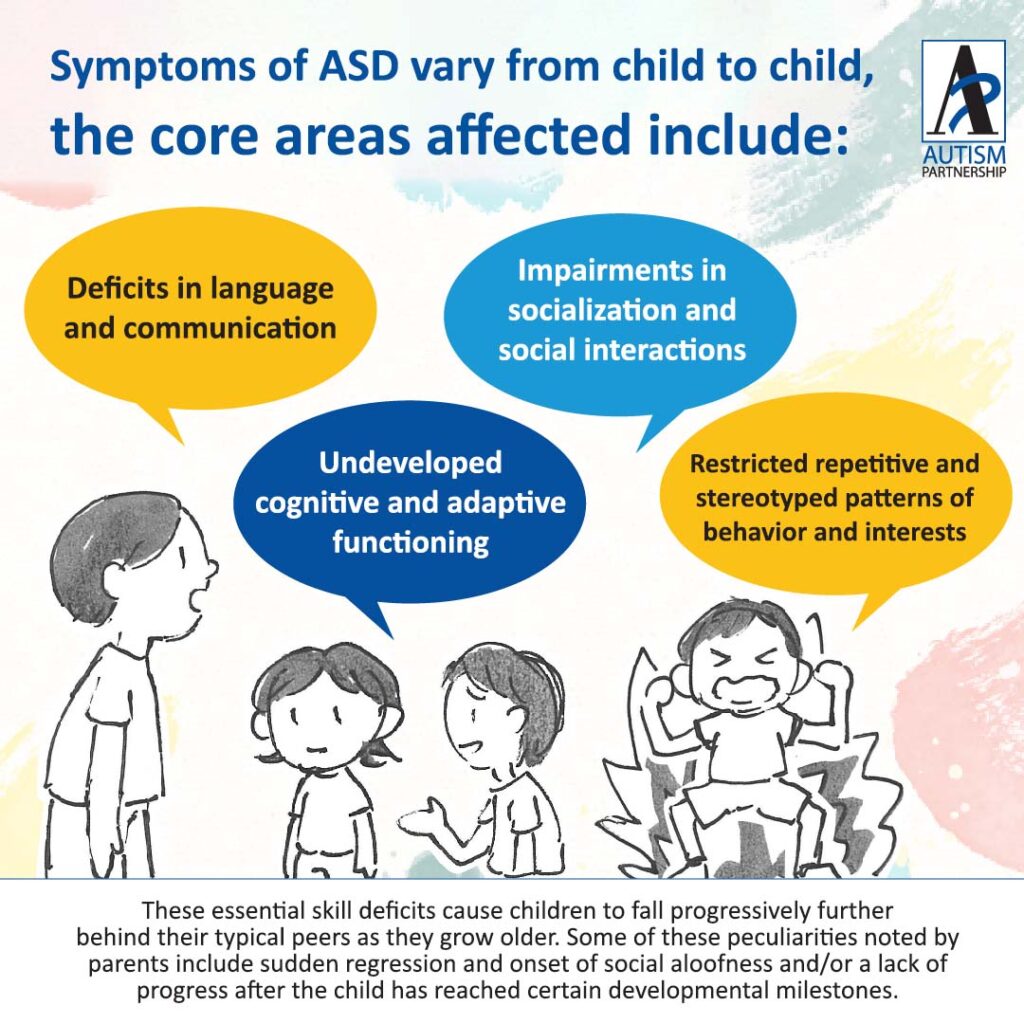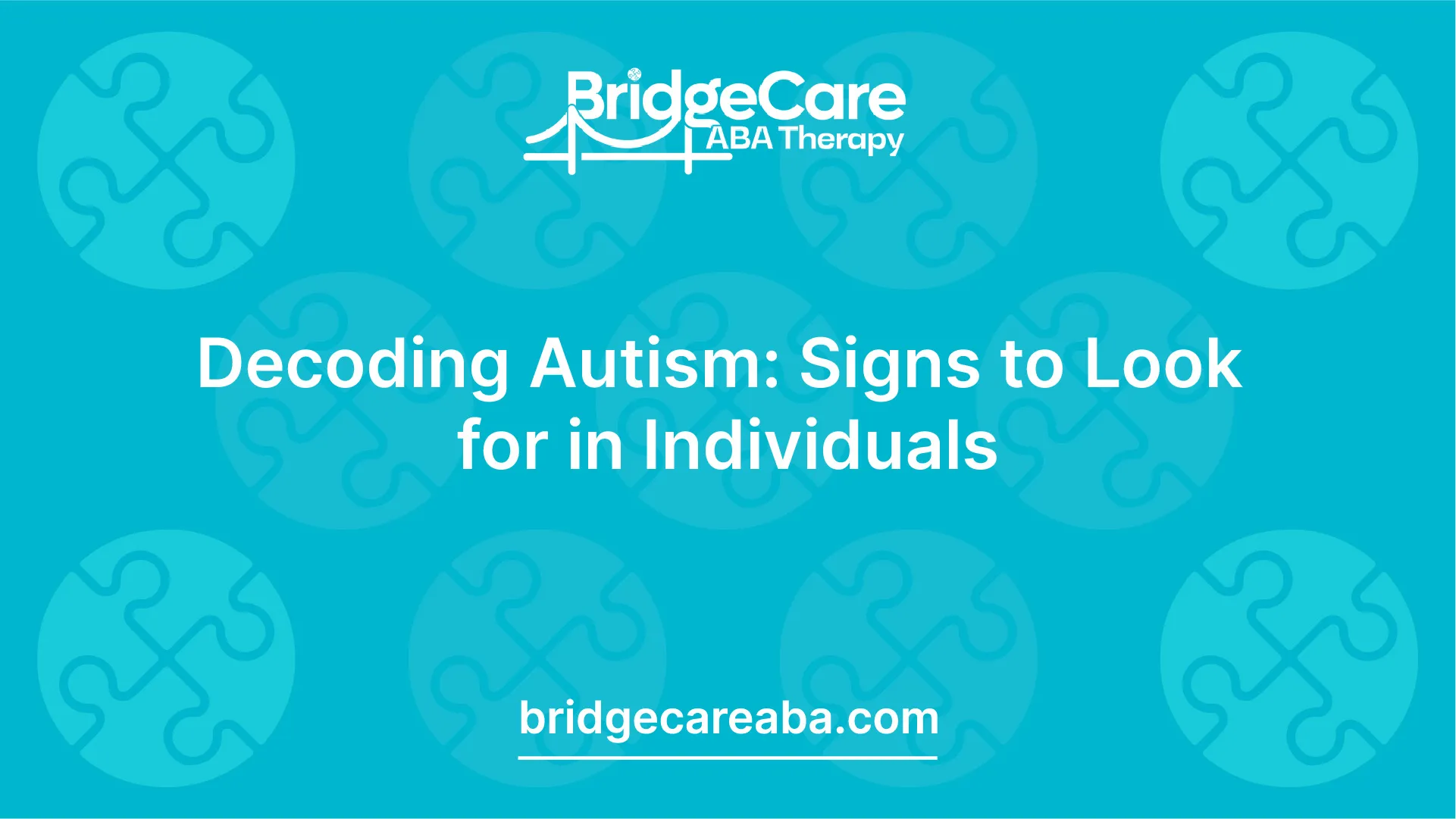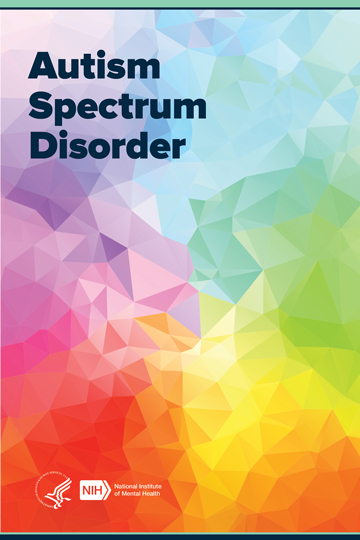Key Indications and Signs And Symptoms to Identify in People With Behavior Autism
When you experience someone with behavioral autism, recognizing essential symptoms and signs is necessary. You could see obstacles in social communications and interaction, along with a solid requirement for routines. In addition, sensory level of sensitivities can cause overwhelming experiences. Understanding these qualities can improve your support and interventions, but there's more to discover about just how these actions show up in day-to-day circumstances. Let's explore what these signs truly look like.
Challenges in Social Interactions
When you communicate with a person on the autism range, you may notice they battle with social hints and communication. These difficulties can make social interactions really feel overwhelming for them. You may see them avoiding eye call or standing too close or also much away throughout discussions, which can produce misunderstandings. They might not detect body movement or facial expressions, making it harder for them to determine exactly how others are feeling.
In addition, you may discover that they choose routines and familiar settings, which can restrict their willingness to involve in new social scenarios. They may chat about their rate of interests in great detail without noticing if you're interested when they do involve. This can bring about one-sided conversations that leave you feeling disconnected. Recognizing these challenges can help you approach interactions with empathy and patience, promoting a more comfy setting for both of you.
Trouble With Verbal and Non-Verbal Interaction

Identifying these indications is important, as it helps you far better assistance and involve with individuals on the autism spectrum. By recognizing their communication difficulties, you can cultivate much more significant connections and offer an extra supportive environment.
Repeated Actions and Routines
Communication difficulties usually accompany other indicators of autism, such as recurring behaviors and a strong preference for regimens. You could see that individuals with autism usually participate in specific, repeated actions, like hand-flapping, shaking, or repeating phrases. These habits can supply convenience and a feeling of control in an usually frustrating globe.
When they comply with a structured routine,Routines are similarly crucial; several people prosper. You might discover that modifications to these routines can result in considerable distress. As an example, if they have a day-to-day routine of consuming breakfast at a particular time or complying with a particular course to institution, any type of disruption can trigger stress and anxiety.
Recognizing these patterns aids you comprehend their actions and supply support. By suiting their demand for regular and allowing recurring activities, you can produce a much more comfortable setting that alleviates their challenges.
Sensory Sensitivities

Common Sensory Triggers
Sensory sensitivities can substantially impact every day life for people with autism, as specific stimuli often activate frustrating reactions. Typical sensory triggers include loud sounds, brilliant lights, and solid smells. You could notice that unexpected noises, like alarms or alarm systems, create anxiety or distress. Fluorescent lights in shops can feel uncomfortable and extreme. Structures can likewise play a significant role; harsh textiles or specific food structures might be excruciating for you. Furthermore, crowded areas can bewilder your detects, making it hard to unwind or focus. Comprehending these triggers can assist you handle your atmosphere much better. By being mindful of what influences you, you can take actions to decrease discomfort and boost your daily experiences.
Behavioral Actions Described
Comprehending your behavior feedbacks to sensory level of sensitivities is essential, as they often disclose exactly how you engage with the globe. You might notice that particular noises, lights, or structures overwhelm you, bring about stress and anxiety or discomfort. When confronted with these stimuli, you may take out, cover your ears, and even react strongly. These reactions aren't simply traits; they're your method of managing overstimulation. You may also locate on your own seeking details sensory experiences, like deep stress or peaceful atmospheres, to help ground on your own. Recognizing these patterns assists you comprehend your needs look at these guys far better and can direct just how you communicate them to others. By acknowledging your sensory level of sensitivities, you can work in the direction of creating a setting that really feels a lot more comfortable and convenient for you.
Coping Methods Introduction
Acknowledging your sensory sensitivities is just the first step; currently it's time to discover coping approaches that can help you take care of those experiences effectively. Beginning by developing a sensory toolkit customized to your demands. Developing a structured routine can additionally provide predictability, decreasing anxiety around sensory overload.
Limited Passions and Focus
While numerous individuals create a wide variety of rate of interests, those with autism commonly show restricted passions and an extreme focus on details subjects. You may discover that a person with autism can spend hours delving into their favored subject, whether it's a particular kind of train, a certain motion picture, or a scientific concept. This extreme focus isn't simply a pastime; it can become a main part of their identity and social interactions.
You may locate that discussions focus on these interests, and they might struggle to engage in more comprehensive subjects. For them, these concentrated interests give comfort and a feeling of proficiency. While it is essential to urge exploration of brand-new subjects, appreciating their interests is equally vital. By comprehending and acknowledging these limited passions, you can foster a supportive environment where they really feel valued and recognized, permitting more significant links and interactions.
Emotional Law Difficulties
People with autism usually encounter obstacles in psychological guideline, which can be influenced by their extreme emphasis on certain rate of interests. You could discover that when an individual is deeply involved in a recommended task, they can experience strong emotions, whether excitement or disappointment. This intensity sometimes makes it hard for them to change equipments or handle their sensations when things don't go as intended.

Irregularity in Developmental Landmarks
When it comes to developmental turning points, you'll discover that people with autism usually reveal a vast array of irregularity. You may see a youngster excel in language abilities yet battle with social communications.
It's vital to identify that each person's trip is special. Some might establish complicated abilities early, just to deal with difficulties later on. Others might take longer to attain basic turning points but then grow in details locations. Observing these patterns can assist you recognize their toughness and requires better.
Frequently Asked Questions
Just How Is Autism Identified in Children and Grownups?
To detect autism in youngsters and adults, professionals evaluate actions, interaction skills, and social interactions. If a specific meets the requirements for autism range disorder., they often make use of standardized examinations, meetings, and observations to determine.
Exist Different Kinds Of Autism Spectrum Disorders?
Yes, there are different sorts of autism spectrum disorders, consisting of Asperger's syndrome and pervasive developmental disorder-not or else specified. Each kind varies in intensity and characteristics, so comprehending these distinctions can useful reference assist you better support people with autism.
What Therapies Are Efficient for People With Autism?
When considering efficient treatments for individuals with autism, you'll discover alternatives like Applied Actions Analysis, speech treatment, and occupational therapy. Each technique can aid boost interaction, social abilities, and daily functioning customized to specific requirements.
Can Individuals With Autism Lead Independent Lives?
Yes, individuals with autism can lead independent lives. With the ideal assistance, skills training, and resources, you can assist them develop self-sufficiency, take care of daily tasks, and prosper in numerous environments, cultivating their freedom.
How Can Families Support Liked Ones With Autism?
You can sustain your loved ones with autism by producing an organized setting, urging their interests, practicing perseverance, fostering communication, and promoting social skills. Celebrate their achievements, no matter exactly go to my blog how little, and construct an encouraging area.
Although several people on the autism range can recognize and make use of language, they frequently face substantial challenges with both verbal and non-verbal interaction. Acknowledging these signs is essential, as it helps you better assistance and involve with people on the autism spectrum. You might discover that people with autism usually involve in specific, repeated activities, like hand-flapping, shaking, or repeating expressions.Sensory level of sensitivities can substantially affect everyday life for people with autism, as specific stimuli often trigger frustrating responses.When it comes to developmental milestones, you'll notice that people with autism typically show a wide range of irregularity.